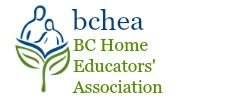Homeschool to Higher Ed – Start Thinking Now!
By: Steve Murphy
When most Canadian students and their families ask the question, “how accessible is university or college for our family?”, they’re usually referring to the cost of tuition, textbooks, laptops, accommodation, and the countless unforeseen expenses that could put a strain on the family’s finances.
For a student who has been home-schooled or home-educated, there is an added and more basic matter to consider. The first question these students probably ask will be, “how am I going to convince the post-secondary institution that the education I’ve received at home has adequately prepared me for the courses I want to take?” When these students look for answers to this question, they often find that many Canadian universities and colleges don’t have policies that clearly specify the process and requirements for students educated at home to apply to their institution.
So what are home-schooled and home-educated students to do? First, know what program or field of study you want to pursue and then do some research on the universities that offer your program of choice to determine if they will meet your educational goals, if they’re the right ‘fit’ for you, if they have learning coaches that support your unique learning style, if they have flexible entrance requirements, and if they are “home-school friendly” institutions. Then, if the university’s website doesn’t provide information about entrance requirements for home-schooled and home-educated students, contact the registrar’s office of the university to enquire. More importantly, ask if you can speak with someone who is knowledgeable in the field of students educated at home.
Now the interesting part….. How do you convince the university or college that you are adequately prepared to succeed at the post-secondary level?
If you’ve written provincial exams in the courses that the university requires for entrance, and if you’ve exceeded the percentage they indicate is their minimum requirement on these exams, then your chances are quite good that you will be accepted. Even without a provincial graduation certificate. Most universities will require more though, so you should consider the list below.
For students whose education hasn’t followed the provincially mandated curriculum and who haven’t written provincial exams, it’s essential you contact the registrar’s office of the university to make an appointment with an admissions officer to discuss entrance requirements. It is critical that you arrange this early so that you can prepare adequately and gather all of the documentation requested by the university. You should bring to the meeting sufficient documentation to convince university personnel that you are adequately prepared to be successful at the post-secondary level.
Here’s a few suggestions:
- Transcript of Marks: you and your parents should generate a transcript showing courses completed and marks achieved for the past 3 – 5 years.
- Student Portfolio: a well-constructed Student Portfolio is an invaluable tool that can be used by the university to establish your academic and personal accomplishments as well as your character and any other qualities you might bring to the university. Your portfolio should include letters of recommendation, your resumé, and examples of your work, as well as descriptions of your educational history, personal goals, work ethic, relevant extra-curricular activities, community service, personal achievements, career aspirations, and how you see post-secondary education contributing to your future aspirations.
- Parent Recommendation: since your parents have been your primary educator and know your abilities best, they are the best ones to comment on your academic achievement. They may also wish to comment on your participation in and contribution to activities beyond the home.
- Third Party Recommendations: can be used in concert with your parent recommendation but they should comment specifically on your readiness for a university-level program of studies. You might ask an employer to comment on skills you’ve acquired in the workplace that will be transferable to post-secondary education and contribute favourably toward your success.
- Student Essay: you might wish to write an essay on an issue that is very important to you and include it in your Student Portfolio.
Additionally, you might consider arranging with a local college or university to write one of the standardized tests that post-secondary institutions will accept as a measure of your competency in Math and English. And don’t forget, even after you’ve done all of the above, you still may be required to write an entrance exam so the university can determine if you meet their entry requirements in specific areas.
When it comes to applying to post-secondary institutions, students who have been educated at home shouldn’t despair that they have to work a bit harder than kids who have gone to ‘regular’ school to convince universities that they are ready for post-secondary education. What is being suggested above shouldn’t be viewed as yet another ‘hoop’ to jump to satisfy university entrance requirements, but rather an opportunity to celebrate and share with others all that you have accomplished up to this point in your education.
(Mr. Murphy is a retired high school principal now working in the recruitment office of University Canada West in Victoria BC. Mr. Murphy can be contacted at steve.murphy@universitycanadawest.ca)
Mr. Murphy wishes to acknowledge the generous contribution of Mr. Leo Gaumont of Education Unlimited to this article. The issue of student access to post-secondary institutions can be viewed in much greater detail at http://www.educationunlimited.ca
